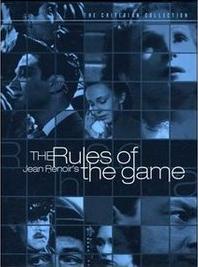The question was asked first on LinkedIn where other answers can be found. My answer was:
“Very important question, Sherri.
There is nothing wrong with linear thinking, but often linear thinkers forget the limits of it. Same problem with holistic thinking and holistic thinkers.
Being "right" requires a disclosure of underlying assumptions or beliefs so we can examine the assumptions and beliefs. Reasoning employs assumptions to yield valid hypothetical conclusions. Believing employs revelations to show communicated starting points from sources beyond the material world of our senses.
By examining the assumptions and beliefs we confirm the rightness of the claim, or not.
Laws and ethics try to avoid the problem by defining, in an authoritative way, how human power may be exercised legitimately or by "right". Enforcers, all around us, use reason, law, ethics, beliefs to help keep order and people in line.
Hence they are linear by nature or by choice, looking for cause and effect, logic, and punishment for "wrong" doers. They want to be in control, lest the world they seek to support collapse about them.
Holistic thinkers, on the other hand, seem more likely to use reason, law, ethics, beliefs to help keep relationships functioning and people included in the effort.
Hence they are whole-hearted by nature or by choice. They want to be in communication, lest the social network they live and work in, and support, collapses about them.
Regardless of whether we are linear thinkers or holistic thinkers, we may be self-centered and thus define what is "right" only in reference to ourselves. When this self-righteousness occurs, we may not want to stick our neck out for anyone and make sure when they do for us it does not diminish our control. Or we may only be willing to yield to a tyrant who is more tyrannical than we are. Or we may cling to the defensive walls of others until they collapse, only to find another set of walls to cling to, never exposing ourselves to the trouble of taking a position (especially about what is "right"). Or we may only want the starring role in whatever the "right" play is, with no genuine dialogue of our own.
Why this need-to-be-"right" plays out in the business world is in play so much now, I believe, is because of the series of huge scandals that have rocked the business community since Enron, WorldCom, and others. Please see the LinkedIn discussions of "might" and "right" linked below.”
What do you think?
Please include your comment here or contact me to discuss.
Thanks.
John Darrouzet
for people who want to make better decisions
The Decision-Maker's Path (tm)...
Quick Overview
Blog Archive
-
▼
2008
(132)
-
▼
March
(81)
-
▼
Mar 01
(36)
- How would you want to be approached by someone who...
- What is the best way to fire someone?
- The proverbial silver bullet -- does it exist?
- WHY: When it comes to trust, trust your gut.
- Questions and Answers on the Decision-Maker’s Path™
- What process do you use in decision making?
- How does one find happiness in the workplace?
- According to you, what is Success? Whom do you con...
- Help Me Understand the Need to Be Right
- How should September 11th be memorialized?
- Have you ever had a prophetic dream or vision?
- How do you think?
- Best book to read while on a business trip?
- What makes a movie trailer Great?
- Do you believe in the bell curve of intelligence a...
- How do you know when you are deceiving yourself?
- How much?
- In a world driven by commerce and profit, what doe...
- Role of Spirituality in your Professional Success?
- Are you part of the creative solution or an uncons...
- What is your integrity-based decision making proce...
- When did you know you were committed?
- A personal question: What is one of the most memor...
- How is it possible not to think too much?
- What are the sources of disruption to your ideal p...
- What makes you Unique? And, after all, what makes ...
- Why is change regarded as a 'soft' area?
- What do you consider are the key components/tools/...
- How can I raise a total of 200.000.000 euro for in...
- If "legally" given a choice...
- What determined your career path?
- What is the role of "spirituality" in your work life?
- Strategic planning (for small businesses)
- Why do organizations need managers AND leaders?
- If better leadership produces better results why d...
- How do you effectively integrate strategic and tac...
-
▼
Mar 01
(36)
-
▼
March
(81)
Discovering the centers ...

... of embedded insights
MOVIES FOR DECISION-MAKERS
Below are the cover images of movies for decision-makers, with clues to better decision-making.
Romero: the significant decision
"I know men and I tell you that Jesus Christ is no mere man. Between Him and every other person in the world there is no possible term of comparison. Alexander, Caesar, Charlemagne, and I have founded empires. But on what did we rest the creation of our genius? Upon force. Jesus Christ founded His empire upon love; and at this hour millions of men would die for Him."
--Napoleon
Decision-making: like climbing ...

a spiral staircase...one step at a time.
John Darrouzet
Special Counsel for Decision-Makers
Links
Followers
Subscribe To
********************* Advertising Disclaimer *********************
NOTE WELL:
Allowing the placement of the ads set out below should not be interpreted to constitute an endorsement or recommendation in any way by Special Counsel for Decision-Making or John Darrouzet of the content or programs referred to therein by the advertisers.
*****************************************************************************************************************************************
Allowing the placement of the ads set out below should not be interpreted to constitute an endorsement or recommendation in any way by Special Counsel for Decision-Making or John Darrouzet of the content or programs referred to therein by the advertisers.
*****************************************************************************************************************************************
*************************** Legal Notice **************************
Decision-Maker's Path (tm) trademark by, and blog content copyright © 2008, John Darrouzet. All rights reserved.

















































No comments:
Post a Comment